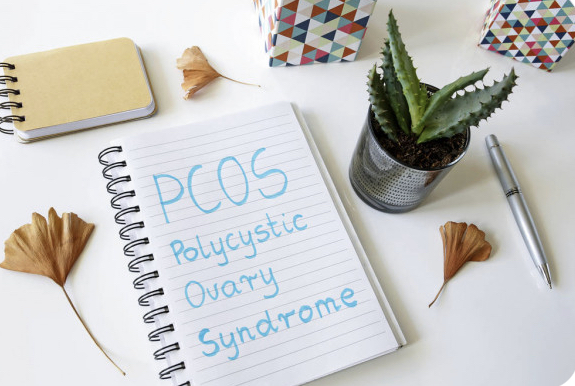The aim of PCOS Awareness Month is to help improve the lives of those affected by PCOS and to help them overcome their symptoms as well as prevent and reduce their risks for life-threatening conditions.
In honor of PCOS Awareness Month, it’s a good time to discuss this topic because most people don’t understand PCOS or even know what it is. PCOS is a hormonal condition common among women of reproductive age, affecting 5-20% of women. It is the most common hormone disorder affecting women, yet 50% of people with PCOS remain undiagnosed.
What is PCOS?
Since PCOS is a hormonal condition and your body is controlled by your hormones, every single system in your body can be affected. These areas include your brain, skin/hair, liver, gut, pancreas, thyroid, adrenal glands, heart and most of all, your ovaries and reproductive system. However, it doesn’t mean your body will be affected in all these areas. PCOS symptoms vary in each individual.
The exact cause of PCOS isn’t known. Factors that might play a role include excess insulin, low-grade inflammation, heredity or excess androgen. The most frustrating symptom of PCOS I see with my clients is their struggle to lose weight. PCOS can lead to weight gain, and obesity can lead to PCOS. Irregular periods, along with insulin resistance can lead to build-up of glucose in your bloodstream, which can cause you to gain weight.
Treatment
Treatment can be simple, such as making suitable lifestyle changes like losing weight through diet changes and exercising more frequently. Focus on lifestyle first, but meds may still be needed. Traditional treatment combines oral contraceptives and Metformin. It’s also important to get the right lab tests and to be screened for health risks.
The good news is that diet, lifestyle and supplements can improve all of these areas. You can optimize your hormones and decrease your health risks by improving the drivers of PCOS, such as insulin resistance, inflammation, stress and altered gut Micro biome. Other factors, such as circadian rhythms and endocrine disruptors, are important to pay attention to as well.
With PCOS, we often hear about the foods that we shouldn’t eat, which may not be evidence-based. However, it’s more important to focus on foods that have health benefits for PCOS. As the saying goes, food is your medicine and certain foods can actually help with PCOS symptoms.
These tips can help:
- Balance blood sugar by eating balanced meals with protein, fat and fiber rich carb.
- Decrease insulin resistance by limiting added sugars and high glycemic carbs.
- Decrease inflammation by limiting processed meats, fried foods, vegetables oils, added sugars, charred meats and refined flours.
- Try to include more vegetables and fruits, Omega -3 rich foods, such as salmon, walnuts, and flaxseed, and decrease Omega-6s found in refined vegetable oils like corn and soybean.
- Consider adding anti-inflammatory spices in your foods, including turmeric, ginger, basil, cayenne pepper, rosemary, sage, oregano and thyme.Improve gut health by consuming probiotics and prebiotics, eating less sugar and sweeteners, and reducing stress.
- Balance hormones by eating enough protein at every meal, engaging in regular exercise, managing stress, consuming healthy fats, drinking green tea, and avoiding over- and under-eating.
- Lower androgens by losing weight and maintaining a healthy weight, drinking green tea, and incorporating marjoram into your cooking to restore hormonal balance.
- Lower cholesterol by following a heart-healthy lifestyle.
- Eat more Omega-3s, increase soluble fiber, fruits and vegetables, limit sodium and alcohol, and exercise routinely.
Here are my favorite foods for managing PCOS:
- Cruciferous vegetables, such as broccoli, cauliflower, and Brussels sprouts
- All greens, including red leaf lettuce and arugula
- Green and red peppers
- Beans and lentils
- Chickpea pasta
- Maca Powder
- Milled Flax Seeds
- Chia Seeds
- Almonds Berries
- Sweet potatoes
- Spaghetti squash
- Avocado
- Whole grains
- Ginger
- Lean Proteins, such as fish, chicken, turkey, seafood and Organic & Non GMO Beef
Foods that can make PCOS worse are unhealthy fats that can increase estrogen production leading to weight gain and worsen symptoms.
Avoid these:
Dairy products, such as cream or cheese and fatty meats
Processed foods
Fried foods
Stay healthy, everyone! And please feel free to share this post or to add your own tips in the comments! If you are having a tough time managing your PCOS symptoms, weight or you need help with your own personal meal plan catered to your goals and lifestyle, reach out to me at: patty@pattyrd.com.





